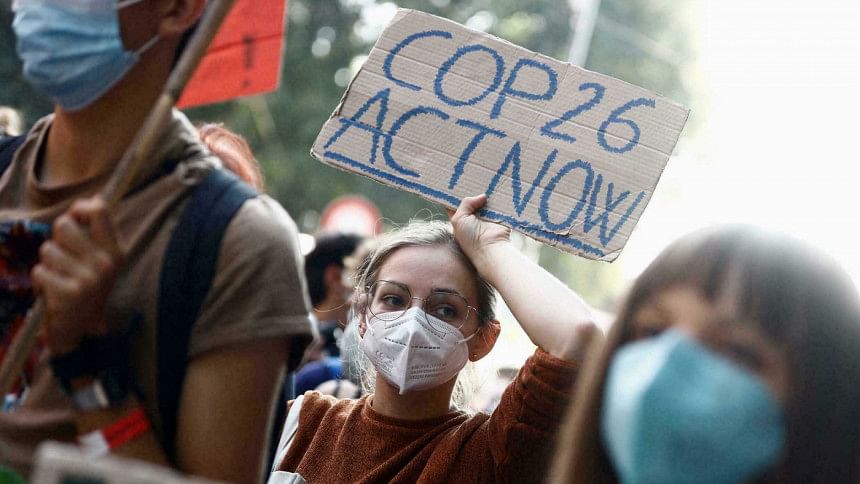The third era of climate change is upon us

The issue of climate change was first identified by the scientific community three decades ago, through the first assessment report of the Intergovernmental Panel on Climate Change (IPCC), and the United Nations Framework Convention on Climate Change (UNFCCC) was agreed upon back in 1992 in Rio de Janeiro, Brazil. Since then, the issue has grown in importance, and the way that it is understood by different groups of people around the world has changed several times. Here, I will describe my take on the evolution of the understanding and perception of climate change, which has now become a global emergency.
The first era of climate change viewed the problem through the first assessment report of the IPCC, and led to the environmental perspective where the problem was defined as a result of greenhouse gas (GHG) emissions and, therefore, the solution was to reduce those emissions. The process of doing so was termed "mitigation" and denoted the first era of perceptions and pledges of action. It led to all countries agreeing to take actions to reduce emissions under the UNFCCC. However, despite that promise, the GHG emissions continued to rise, and are still doing so today.
This, then, was followed by the second era of climate change, through the third assessment report of the IPCC, which was published in 2001 and highlighted the failure of mitigation actions. The report cautioned about the failure leading to the adverse impacts of climate change, which would be unavoidable in the near future. Hence, there was a need to prepare for those adverse impacts by adaptation to climate change. I had the privilege of being a lead author of that report, which highlighted the importance of adaptation for the first time.
An important corollary of this message was that not every community in every country would be adversely affected immediately—the poorest communities in the poorest countries would be the first to experience the impact; hence, tackling climate change was no longer just an environmental issue, but a development issue as well. This era of climate change drew in development actors both globally through the United Nations agencies and multilateral development banks, and nationally with the government authorities of planning and development.
The era of adaptation has been pursued since then, in parallel with the era of mitigation, which still continues.
Both mitigation and adaptation were enshrined in the Paris Agreement on climate change at the 21st Conference of Parties (COP21) in 2015, where the goal of keeping the global temperature rise below 1.5 degrees Celsius was agreed upon for mitigation, and a global goal on adaptation was accepted to be developed. The latter goal will be a major subject of discussion in the upcoming COP26, hosted by the United Kingdom in November this year, in Glasgow, Scotland.
After the publication of the sixth assessment report of the IPCC in August this year, we have now entered the third era of climate change, which is about the loss and damage attributable to GHG emissions since the Industrial Revolution, which has already raised global mean temperature over one degree Celsius, which is already causing severe adverse impacts around the world.
While the first era was under an environmental paradigm and the second era under a development paradigm, the third era is under a climate justice paradigm as the problems are caused by the rich and the victims are the poor—which is completely unjust and indeed immoral.
We still need to continue—and do much more of—mitigation and adaptation, but we also have to address the inevitable loss and damage from human-induced climate change going forward. Thus, COP26 will be the first climate summit of this new era, and all countries will need to rise to this new challenge.
I will conclude by making a few suggestions on how to do so.
Firstly, the objective of the UNFCCC, the actions to reduce emissions, and adapting to climate change is no longer about the future, but about the present as we are already seeing the costs of loss and damage occurring in almost every country. These costs will rise exponentially, at least in the near term, so the new metric for measuring success is how much the loss and damage of climate change is minimised, as it can no longer be avoided or prevented. This will be a major paradigm shift, for which COP26 will have to lay the foundations to deal with it in every COP onwards.
The second point to recognise is that, as of 2021, the loss and damage of climate change is no longer a developing-country-centric issue, but a global issue as rich countries are beginning to feel the hurt as well.
The third and final point is that a significant paradigm shift is necessary to treat the climate change emergency as an issue of injustice where poor people are suffering due to the pollution caused by rich people—this is immoral and unacceptable. It is, therefore, time for every conscious citizen on Planet Earth to think in terms of solidarity for all the victims of loss and damage, and extend a helping hand towards their fellow human beings. Hence, in this new era, everyone, everywhere, needs to take actions to reach that goal every day; we cannot wait for the leaders alone to act.
Dr Saleemul Huq is director of the International Centre for Climate Change and Development (ICCCAD) at the Independent University, Bangladesh.

 For all latest news, follow The Daily Star's Google News channel.
For all latest news, follow The Daily Star's Google News channel. 



Comments